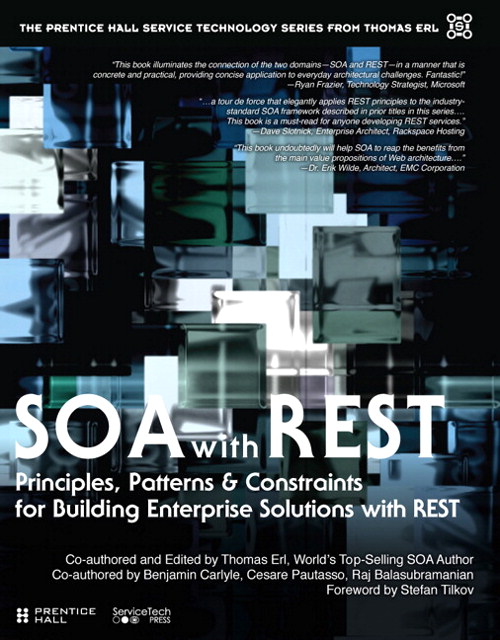Does REST need transactions?
- The typical conversation thread about transactions over HTTP goes something like this:
- "You don't want transactions over HTTP"
- But I need to organize number of steps into a single unit I can deal with easily.
- "OK, but you don't need transactions over HTTP"
- But I need the ability to back out changes in multiple locations safely and consistently.
- "OK, but you can't do transactions over HTTP!"
- Really?
- And here the topic usually dies or descends into a heated debate.
The Context
The Problem
Single state transfers from/to
the client are idempotent
How do we make both interactions atomic?
Constraints
- Interoperability
- No changes/extensions to HTTP
- No additional verbs
- No special/custom headers
- Loose Coupling
- REST services should remain unaware they are participating in a transaction
- Simplicity
- Transactions will not be adopted in practice unless they can be made simple enough
Try-Confirm/Cancel
TCC Participant's view
- Try: Insert into reservation db
- Confirm: Update reservation,
set status = confirmed - Cancel: Invalidate reservation
- Timeout: Invalidate reservation
Try
POST /booking HTTP/1.1
Host: api.swiss.comHTTP/1.1 201 Created
Location: /booking/{id}Confirm
PUT /booking/{id} HTTP/1.1HTTP/1.1 200 OKCancel
DELETE /booking/{id} HTTP/1.1HTTP/1.1 200 OKTCC Example
Failure before Confirm
Failure after Confirm
Failure during Confirm
Timeout during Confirm
Timeout?
GET /booking/{id} HTTP/1.1
Accept: application/vnd.atomikos.tcc+xmlHTTP/1.1 200 OK
Content-Type: application/vnd.atomikos.tcc+xml
<tcc>
<reserved url="/booking/{id}" timeout="24h"/>
</tcc>After a Timeout
PUT /booking/{id} HTTP/1.1HTTP/1.1 404 Not FoundWorkflow
Try to reserve multiple resources
POST /telephone HTTP/1.1
Host: api.swisscom.chHTTP/1.1 201 Created
Location: /telephone/0586664302POST /bill HTTP/1.1
Host: api.post.chHTTP/1.1 201 Created
Location: /bill/42If everything is successful, confirm the bookings
PUT /telephone/0586664302 HTTP/1.1
Host: api.swisscom.chHTTP/1.1 200 OKPUT /bill/42 HTTP/1.1
Host: api.post.chHTTP/1.1 200 OKWorkflow
Try to reserve multiple resources
POST /booking HTTP/1.1
Host: api.swisscom.chHTTP/1.1 201 Created
Location: /telephone/0586664302POST /bill HTTP/1.1
Host: api.post.chHTTP/1.1 500 Internal Server Error
Incorrect billing addressIf something fails, do nothing.
The reserved resources will eventually timeout.
If something fails, a polite workflow would explicitly cancel the successful reservations
DELETE /telephone/0586664302 HTTP/1.1
Host: api.swisscom.chHTTP/1.1 200 OKOverview
Deployment
Deployment: Web Browser
Transactions as a Service
Comparison
Compensatable Workflow
Workflow models happy path + completion
The model is:
- Overly complex
- Hard to test
- Hard to maintain
TCC Workflow
- Push undo onto participant services
- Services can cancel reserved states
- Increased Autonomy
- Decouples error handling from the (explicit) workflow
- Add a confirmation outcome too
- Delegate the coordination of completion to a coordinator service
- Either confirm all participant services, or
- Make sure all participant services cancel
- "Stateful Utility Service"
Compensation vs. TCC
- Invoke: Buy
- Undo: Sell
- Try: Reserve
- Confirm: Pay
- Cancel: Release
TCC Benefits
- Business can focus on the happy path (try-phase)
- No combinatorial explosion of error path complexity
- Participating services have increased autonomy
Interop Risk
An interoperability risk exists if: two endpoints need to communicate, and both are outside your control
Minimize Interop Risk
- With TCC, you always control at least one end of each communication link
- There is no transaction context to ship
- There are no interceptors to configure
- Everything makes sense to the business
- “Real” SOA approach to transactions
Lower Coupling
Higher Autonomy
With TCC, participating services do not need to know the coordinator (unlike WS-*)
WS-*: Transaction Scope Risk
A service call can carry a transaction context, but still the service can ignore it!
WS-AT: DoS Risk
WS-AT is ACID, meaning locks
Conclusion: REST/TCC
- Distributed atomic transactions with guaranteed interoperability
- Applicable for reservation-style business models
- Design pattern, not a middleware
- Fits really well with REST design constraints
- We are looking for early adopters that need transactions in their SOA built with REST
(or even SOAP)
References
- M. Babazadeh, Distributed Atomic Transactions over RESTful Services, Master Thesis, University of Lugano, Switzerland, June 2012
- T. Erl, B. Carlyle, C. Pautasso, R. Balasubramanian, SOA with REST: Principles, Patterns & Constraints for Building Enterprise Solutions with REST, Prentice Hall, August 2012, ISBN 9780137012510
- G. Pardon, C. Pautasso, Towards Distributed Atomic Transactions over RESTful Services, in: REST: from Research to Practice, Springer, 2011
- C. Pautasso, RESTful Web Service Composition with JOpera, Proc. of the International Conference on Software Composition (SC 2009), Zurich, Switzerland, July 2009

Transactions for the REST of us
Cesare Pautasso, http://www.pautasso.info/
Guy Pardon, http://www.atomikos.com/
Use a spacebar or arrow keys to navigate
